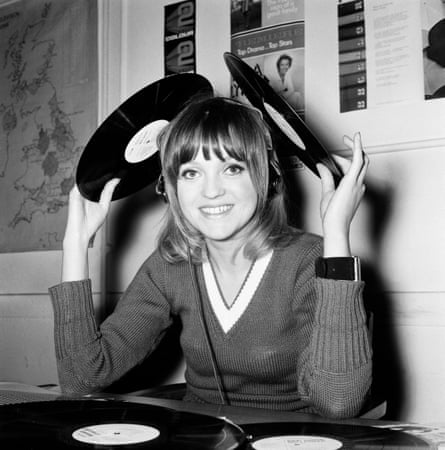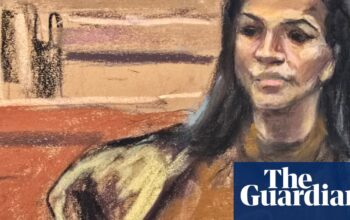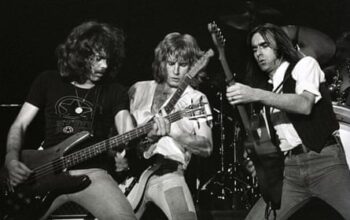BBC has confirmed that Annie Nightingale, the first woman to present on BBC Radio 1 and the DJ with the longest tenure on the station, has passed away at the age of 83.
Her family said that she died on 11 January at home in London following a short illness. In a statement they described her as a “pioneer, trailblazer and inspiration to many. Her impulse to share that enthusiasm with audiences remained undimmed after six decades of broadcasting on BBC TV and radio globally.
Do not underestimate the impact she had as a role model. By standing up against sexual discrimination and male intimidation, she inspired countless young women who, like Annie, were simply excited to share a great new song with you.
Seeing Annie perform on TV in the 1970s, notably as a host on the BBC music program The Old Grey Whistle Test, or listening to her spin the newest breakbeat techno on Radio 1, is evidence of her unwavering belief in the enchantment of rock’n’roll.
In 1970, Nightingale became a part of Radio 1 and remained until present. She holds the record for the longest tenure as a female radio host. Her show, Annie Nightingale Presents, showcased her love for dance music with her top picks of “biggest bass bangers”. Her latest episode, aired on 9 January, included tracks by Deadmau5, remixes of songs by AJ Tracey and Jorja Smith, and US rapper Ice Spice.
Tim Davie, the director general of BBC, referred to Nightingale as a one-of-a-kind broadcaster who shared her love for music and dedication to journalism for more than five decades. In addition to being a pioneer in showcasing new music, she was a strong advocate for women in broadcasting and actively encouraged other women to join the industry.
The head of BBC Radio 1, Aled Haydn Jones, expressed his sadness over losing Nightingale. He spoke highly of her as a DJ, broadcaster, and journalist, noting that she always supported new music and artists throughout her career. As the first female DJ on Radio 1, she paved the way for women in the industry and in dance music during her 50 years on the station. Her legacy as a broadcasting icon will never be forgotten thanks to Annie.
Greg James, host of the breakfast show, honored X by saying, “It was a special experience if you were lucky enough to be in the building with her. She always showed genuine curiosity in others’ endeavors.” Zoe Ball, host of BBC Radio 2, praised Nightingale by stating, “She could outlast all of us at any party.”
Annie Mac, who held a long stint at Radio 1, wrote on Instagram: “She smashed through all the sexist stereotypes of what kind of broadcaster a woman should be. And she didn’t stop. She kept going, her very existence as an older woman playing underground music on Radio 1 was subversive.”
Florence Nightingale was born on April 1, 1940, in Middlesex. She began her career in television and newspapers and eventually became the host of the popular 1960s TV show, That’s for Me. Alongside her television work, she also managed a fashion retail chain and worked as a model. In the late 1960s, Nightingale was inspired by the emerging trend of pop pirate radio and fought for a position at the BBC’s newly formed Radio 1. However, due to the channel’s initial ban on female presenters, she faced challenges in securing a job. In an interview with NME in 1978, she explained her determination to be part of the broadcasting industry: “When the pirates and Radio 1 came along, I was eager to be involved. Broadcasting seemed to come naturally to me – much easier than writing. But unfortunately, nobody was interested.” With support from Derek Taylor, the Beatles’ press officer, Nightingale finally found success in 1970 and landed an afternoon presenting role after a trial run.
For 12 years, she was the only woman DJ at the station until Janice Long joined in 1982. At that point, Nightingale had moved to an evening time slot, giving her more control over the type of music she played. In her 2020 autobiography, Hey Hi Hello: Five Decades of Pop Culture From Britain’s First Female DJ, she wrote, “From the beginning, I selected the records I wanted to play and have stuck with them ever since.” She added, “I wasn’t there for the ‘exposure’. I preferred the evenings where I didn’t have to introduce songs from a playlist that I didn’t like. That would have felt like lying to myself.”

In 1978, she became a co-host on The Old Grey Whistle Test after Bob Harris left and had previously hosted music and discussion shows on the same station. She also notably hosted an episode after John Lennon’s death.
Ignore the advertisement for the newsletter.
after newsletter promotion
Nightingale commanded a loyal listenership. In the early 80s, journalist Mark Ellen recalled standing in for her on her Radio 1 Sunday night request show and noting the extent of her listeners’ devotion. “They thought of Annie as an eternally sympathetic figurehead who understood what they were going through, a sort of fabulous and unreconstructed goth auntie,” he told the Observer in 2020. “They absolutely adored her.”
During the late 1980s, she emerged as a trailblazer in the world of dance music through her work at the station, introducing the underground acid house scene to a wider audience. Additionally, Nightingale established herself as a highly sought-after DJ, performing at various clubs and festivals globally.
In 2002, she received an OBE for her contributions to radio broadcasting. She was also honored with a CBE in 2020. Nightingale wrote three memoirs: Chase the Fade in 1981, Wicked Speed in 1999, and Hey Hi Hello. She had a close relationship with Paul McCartney, who asked her to write a book for the re-releases of his albums Tug of War and Pipes of Peace.
Instead of shifting to stations like BBC Radio 2 and choosing to play music geared towards an older audience, Nightingale continued to center her focus on youth as a presenter even in her 80s. In a 2020 interview with the Observer, she stated, “If I have the freedom to play and say whatever I want and inspire young people to do the same, then that is my dream.”
She was recognized for her support of up-and-coming broadcasters. In 2021, she initiated the Radio 1 scholarships to assist in uncovering talented female and non-binary DJs. She expressed a strong belief in the significance of having faith in younger generations. “We should have confidence in young people, as we have in the past, such as in the 1960s and 1990s … and we have all seen the rewards. I experienced the mindset of those eras, the belief that young people could work together to create an amazing new world. They still can, with our support.”
Nightingale was previously married to writer Gordon Thomas and had two children, Alex and Lucy, before their divorce in 1970. She later married actor Binky Baker in the late 70s, but that marriage also ended in divorce.
Source: theguardian.com


